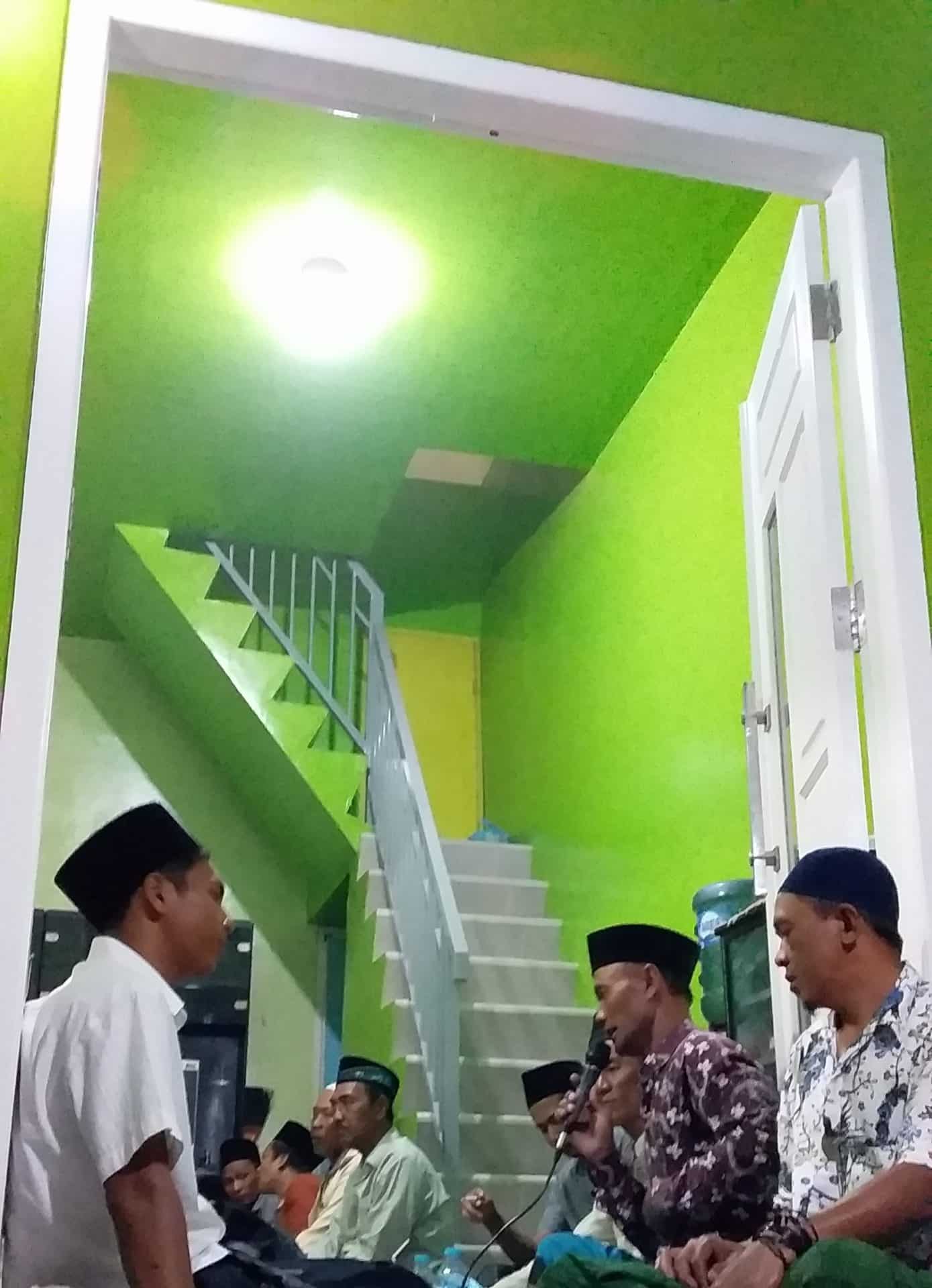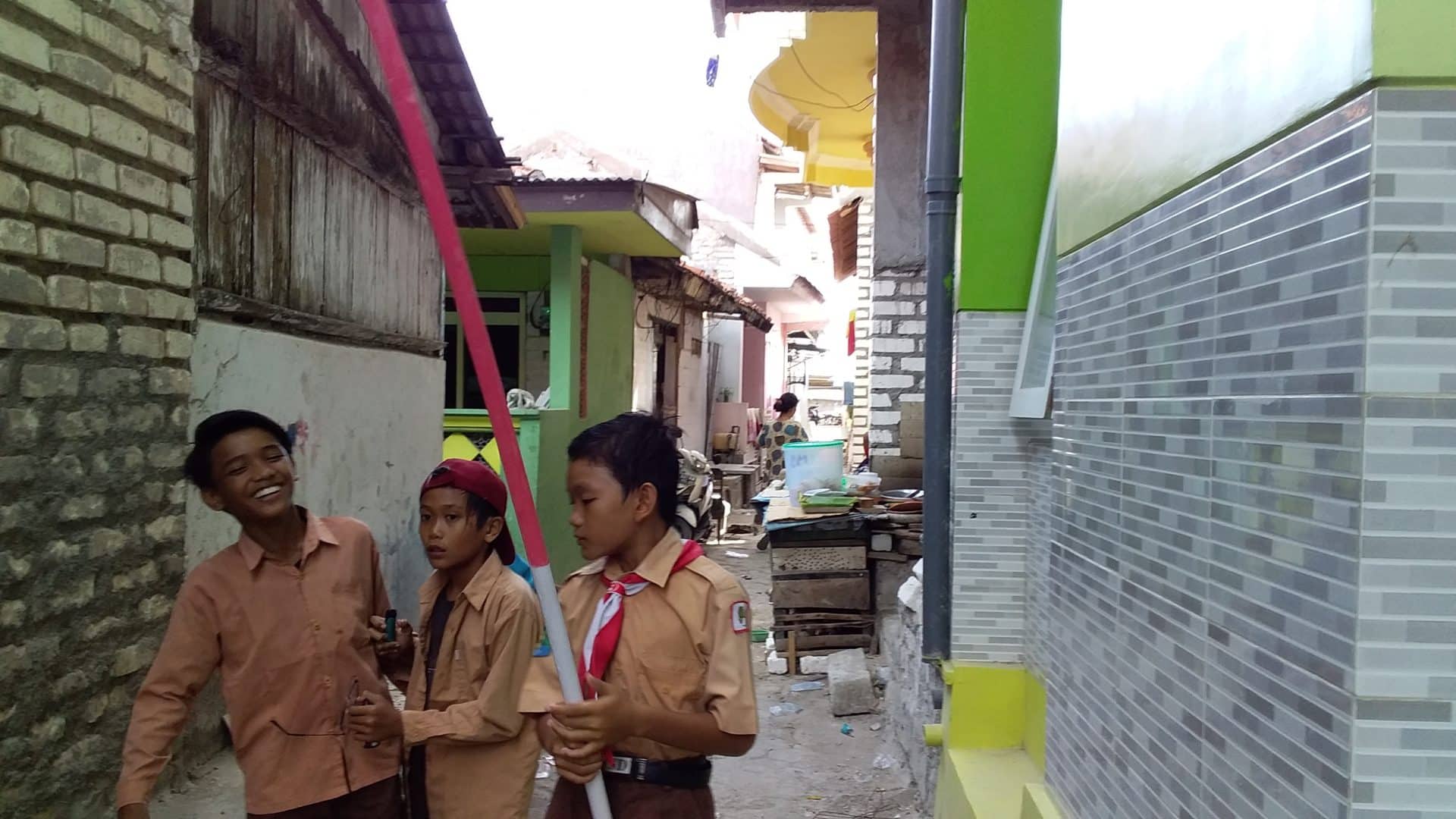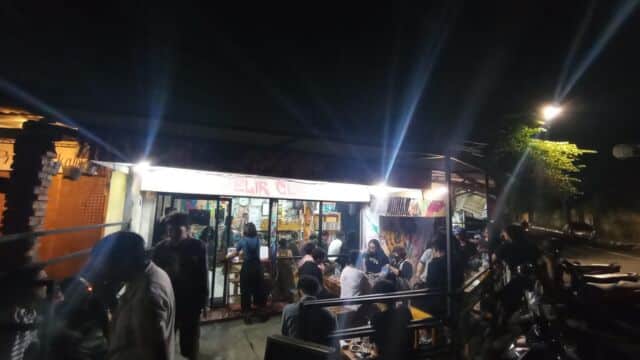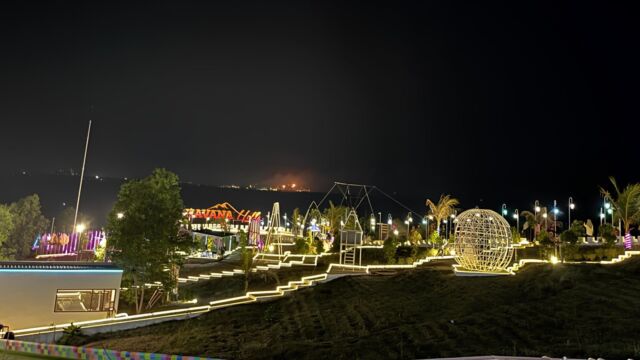The Roar of the Ocean Can’t Compete With a Madurese Village
Photo: Royyan Julian
The village of Branta Pesisir | 2,000 words | Translated from Bahasa Indonesia by Dan Benjamin
During the night’s final third, at around 3:30am, a harsh sound assaults my ears. Startling me from a slumber that I had begun only three hours before. It’s a shriek, raw and aggressive. And yet, the noise is coming from the mosque loudspeaker. Echoing the words of God.
In Branta Pesisir Village, our family house stands right on the north side of a mosque. During Ramadan, declamations of the divine scriptures, which should sound beautiful, come at the wrong time, by a mistaken means. And so the artistry of reciting the scriptures is rebuffed by my exhausted body.
Supposedly, some of the divine revelations that came to the Prophet Muhammad took the form of a harshly-ringing bell. I can imagine, living where I do, the Prophet’s anguish when he experienced that.
The shrillness that wakes me from my sleep would perhaps be useful for training people who wish to become prophets. But not for me. Unlike the Persian graphic novelist Marjane Satrapi, who has said her childhood was made happy by aspirations to become a prophet, it does not even slightly cross my mind to bear the fate of humanity. So I make great efforts to close off my ears with my pillow. But no matter how much I press that pillow, the sound still enters my ear canals.
We tend to think of a village as a part of the world where quiet and serenity reside. Like the bare peacefulness spilled out in the old Dutch Indies mooi indie paintings. This assumption will be halted if you live in the Madurese countryside. I don’t mean to generalize, but in the Madurese countryside, some people install loudspeakers and play old cassette tapes or some other form of entertainment until it’s audible in every corner of the village, with no heed of the time. And we will hear it. Loud noises are louder-still in a village of only twenty-two hectares, and with only 5,468 inhabitants, like Branta Pesisir.
I can’t simply protest that sort of clamor – let alone noises that also unsettle me but that have a connection to religion. If I were to do that, people would slander me. Which would still be considered lucky compared to the sad fate of a woman named Meiliana who in 2016 was sentenced to 1.5 years in jail for complaining about the noise from the adhan of a mosque in North Sumatra. It was considered blasphemy.
‘I have a problem with all the loud noises in my kampung’. One time I let off steam to my friend Fikril.
‘Yep, all these sounds are definitely not controlled all that well’, my curly-haired artist friend said. ‘Layers and layers of noises, overlapping, all over the place. Chaos’.
‘A chaos of sounds, from the point of view of an artist, might become avant garde, might it?’ I asked.
But no, in Branta Pesisir, this sort of chaos has not ever been avant garde. In our village whose name means ‘a beautiful place on the edge of the sea’ – even though that’s not the reality of Branta Pesisir – chaos is part of the cosmos. One can imagine what kind of sound-mulch floats in the sky above and fills up the narrow alleyways of this dense human settlement, a fishing community: music from the loudspeakers, conversations, yelling, calls of hawkers, and on and on.
I teach Indonesian Literature at the University of Madura, five kilometers to the east of Branta Pesisir. I head back home for a break during the afternoon after my work is done. After that, my social life usually happens in the city. I’m active in a number of artistic communities, and in the evenings I like to hang out with friends in a coffee-shop near campus. My family home constitutes the one and only space I have to rest and recharge, which is why noise has ended up causing me such problems.

In this village, people speak at a volume that’s above average. As if they’re yelling. As if they’re spoiling for a fight. The sharpness of my neighbor’s chatting sounds so provocative that often I suspect there’s a dust-up going on.
What is it that makes the people of Branta Pesisir speak so shrilly? Some say that this village speaks at maximum volume so that their voices are not swallowed up by the crashing of surf: that it’s because their voices must compete with the rumble of the ocean waves.
But the cannon-like surge of the sea is not able to rival the sounds of humans in Branta Pesisir.
In my home, at the crack of dawn, when I really should not be awake yet, the chatting of my parents pierces the wall to show up without permission in my room. The sound of them talking I’ll hear right after the dawn prayer, about 5am. They typically wake me instantly. And if that happens, I can’t go back to sleep. So I’m often tired because I don’t get enough rest. I’m the type of person who has problems getting a good sleep.
Commotion swells up more during the hottest part of the day. During my time of rest, as my nap is disturbed, my mood takes a turn for the worse. My consciousness will remain well and truly ‘on’ because of the chatting all around me, and the commotion of little kids playing, and the knocking on the door of my family house by guests who come one after the other. Unwelcome ‘assalamulaikums’, the ones that are spoken from our back door.
Disturbed by the beats of the song ‘Sambalado’, its title and lyrics being about mashed chilies, the music’s spiciness is felt not on the tongue but in the ears.
Sometimes the voices of roving vendors also contribute to extinguishing my time of rest. Some sellers of satay now no longer hawk their food by simply yelling out ‘Satay! Satay!’, but use a recording. From far away I can hear the pre-recorded message, monotonous and endlessly-repeated, ‘Chicken satay, beef satay, it’s delicious coy!’, the Indonesian word ‘coy’ (ch-oy) with its drawn-out pronunciation giving the sentence an extra edge. As the sound gets closer to my house, it joins with the sounds of my neighbors and the young kids playing, all forming a discordant choir that is heard all through the kampung.
If I’m able to sleep and dream, noises from the outside enter and become part of those dreams, altering their subject and nature until they dominate, before they finally wake me up, at which point I realize that the noise inside my dream is actually coming from outside it. Let’s say a neighbor is currently playing the dangdut song ‘Bintang Pentas’ at a moment when I’m dreaming about being in a college classroom. Suddenly, during my dream, the college scene changes into a wide field full of people doing cheesy dance moves, and in front of my eyes, a dangdut band stage exhibits Dewi Persik who’s singing: ‘I am the star of the stage … my work starts when night comes…’ If you want to know more about how external sounds can invade dreams, I recommend Sigmund Freud.
From all the different sources of commotion, music from the neighbor’s sound system is the most atrocious – with its volume increasing two or three times over if there’s some big lively social event. Their jumbo-sized sound system happens to be inside their house, though sometimes sound systems get installed in outside yards. The lilting-voiced din can echo throughout the day, from the moment the sun appears to the moment it sinks again. I, at least, find it deeply irritating, but I have no idea if others nearby feel the same.
Those neighbors must think that all other people are happy if fun, boppy music gets shared. Like a charity contribution in the form of entertainment. But do they not reflect: what if a baby is sleeping? What if a neighbor is currently nursing a toothache? So far nobody has protested the hubbub, including me. Disturbed by the beats of the song ‘Sambalado’, its title and lyrics being about mashed chilies, the music’s spiciness is felt not on the tongue but in the ears.
I’ve talked this issue over with my mother. She only responds, casually: ‘they’re not obliged to do what you want’. The world doesn’t operate on what I hope for: that was the gist of it.
I often think, if the world doesn’t revolve around my wishes, I should ensure I rotate in tandem with the world. In other words, I should tolerate all of the absurdity of my village in the middle of the day: the loud talking of my parents, every assalamualaikum and every knock on the door, the spirited playing of the kids, the beating of a gong that a hawker of ice-cream uses to announce his presence, and the shrill crooning of dangdut singer Ayu Tingting.
Branta Pesisir Village only sinks into a sound sleep late into the night. And at that time, my friend Ade, who has no problem with all forms of commotion, will writhe in discomfort. The kost boarding-house of this guy, who’s in his third semester of college and is a real though not-yet-diehard fan of Japanese anime, is never without loud music from his own miniature sound system. He cannot do anything, including sleep, without anime music or films blasting at high volume.
If I’m visiting his kost, I’ll ask him to turn it down a tad. If I’ve decided to stay over, sometimes I’ll go home in the middle of the night because it’s too much for my ears. If silence is the main precondition for enlightenment, I’m sure Ade is someone who will never reach Nirvana.
‘Enlightenment’. I feel enlightenment is a fitting word to end this essay. And the story of the enlightenment of Werkudara, told in the Javanese wayang puppet-theatre, is relevant for this noise problem that I have discussed here. Come on then, let’s help me remember:
After Werkudara successfully destroyed the dragon Ambarnawa with his long sharp knife-like nails, in the middle of the sea, he was called by Bimasuci. Without a loudspeaker, and without use of any sound system.

The little god Bimasuci asked Werkudara to enter his stomach via his ear.
‘How is it possible that I, as big as this, can squeeze into your stomach through your ear?’ laughed Werkudara.
‘Never mind you, the universe itself can enter into my stomach’, Bimasuci answered. Once inside Bimasuci’s stomach, Werkudara found a hole without a bottom, a barrenness without a horizon, an emptiness that contained the greatest profundity. Inside there, he received a treatise on the essence of truth, on good moral sense, on complete understanding, on the unity of worlds large and small.
‘Serat Dewa Ruci’, a story originating from the Mahabarata and modified for Javanese Islam, has a premise that’s easy to absorb: genuineness, authenticity, comes from inside you. Bimasuci is an alter ego of Werkudara himself. The voice of Bimasuci constitutes the pristine call that comes from knowing your identity. Whoever knows themselves can know God – that’s the lesson, more or less.
The Prophet received a revelation in the form of a harsh beating of a bell, as I touched on above. But to reach that clamor that was serene, that commotion that was sacred, the Prophet needed quiet. Ruckuses from outside leave us unable to hear the pure voice coming from inside our own heads, the pristine whispering of our own souls.
© Royyan Julian
English translation © Dan Benjamin






